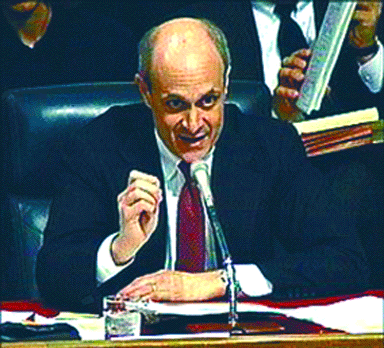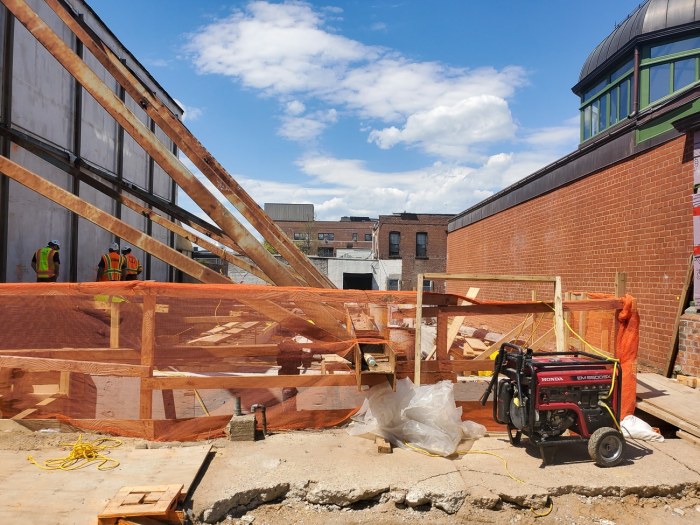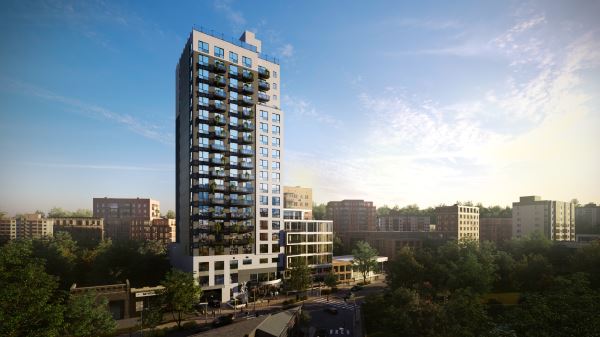Strong bias in federal courts against immigrant claims for refuge
In a ruling that shows how difficult the conservative federal courts and the homeland security hierarchy have made it for foreign gays to win asylum here, the Third Circuit U.S. Court of Appeals, in Philadelphia, ruled on November 18 against an asylum petition by a gay man from Jamaica, a notoriously homophobic nation, even though an immigration judge had ruled in the petitioner’s favor.
Oneil Orlando Parker, of Kingston, Jamaica, was found by the immigration judge to have credibly testified that an inflammatory newspaper article outed him in 1999, that he was later threatened and assaulted by members of a neighborhood gang and that his attempts to relocate to other neighborhoods in Jamaica were unsuccessful due to his being recognized.
After his last relocation effort in Jamaica failed in 2001, Parker fled to the United States. The immigration judge also found that some of the gang animus against Parker may have been due to family disputes between Parker and the gang’s leader, and from the gang’s belief that Parker had cooperated with police in a murder investigation.
The judge concluded that Parker was entitled to asylum in the United States because he is a member of a distinct social group—gay men—who was reasonably afraid of future assaults if he returned to Jamaica, and that the police could not control the gang that threatens him with violence, linked at least in part to his sexual orientation.
The government appealed this ruling to the Board of Immigration Appeals, which reversed the judge. Although the board agreed with the judge that there was a “pervasive animus towards homosexuals in Jamaica” and that Amnesty International had reported that the police there treat gay people poorly, the board asserted that Parker had not proved that the government itself was “unwilling or unable to protect him from harm.” This time it was Parker who appealed.
In an opinion for the three-judge panel, Circuit Judge Michael Chertoff found that the board’s conclusion that the police could protect Parker was based on a letter that Parker himself had submitted as evidence. The letter, by a police detective named Michael Garrick, indicated that Parker lived in a violent neighborhood and had been threatened several times after his cousin James Brown was “shot at resulting in the arrest of three persons.”
“The fact that Parker is close to Brown he has been threatened several times,” Garrick wrote. “It has reached the extent that he reported to me that he is in fear of sleeping in his community. In addition, people from the community is [sic] accusing him of being a homosexual and expressed that they do not want him in the community.”
Garrick indicated that the police were offering protection and “have tried to get on top of the situation but Parker does not feel comfortable.”
Chertoff characterized the Board of Immigration Appeals’ reading of this letter as “perhaps overly sanguine,” and characterized it as a “mixed message.” The letter seemed to indicate that the threats against Parker were more about the gang’s dispute with his cousin than his homosexuality, but on the other hand that “individual police have tried unsuccessfully to help Parker, perhaps—as the Board acknowledged—because of his assistance in their investigation.”
Chertoff devoted a paragraph of his opinion to summarizing the overwhelming evidence that gay people in Jamaica are at serious risk: “There is considerable evidence that virulent prejudice against homosexuals exists in Jamaica. Reports of Amnesty International—on which the Board relied—note two incidents of misbehavior against gays in police custody, one of which was a 1997 prison riot. Amnesty International also described incidents in which police have failed to respond to ‘incidents of homophobic violence.’ An extensive news article in the Jamaica Gleener in 2001 recounts that leaders of both major political parties found it advantageous to emphasize their strong personal distaste for homosexuals. The record discloses a culture of anti-homosexual violence that is deeply ingrained, and reflected in popular songs that urge violence against gay men.”
But Chertoff weighed this evidence against indications that students who engaged in anti-gay violence “have faced expulsion,” and that a recently established Public Defenders office has “strongly criticized violence targeted against homosexuals.”
Chertoff also noted evidence that some government agencies had begun programs “designed to educate police to respect citizen’s rights.”
In the light of this countervailing evidence, Chertoff found that the board’s decision to overturn the judge’s ruling should stand.
“The question boils down to this,” he wrote: “Was there substantial evidence that the government is not unable or unwilling to control violence against gays?” Describing the question as “close,” Chertoff said, “We cannot conclude that the board’s conclusion was unreasonable. Although Jamaican society evidently takes a harsh view of homosexuality, there is some evidence—including Detective Garrick’s letter—that officials recognize that violence against gays is unacceptable. We cannot say that the board weighed this evidence unreasonably.”
In other words, even though the international human rights community has recognized that openly gay men in Jamaica face serious threats of assault which the government there has been unable to curb, U.S. treaty obligations to provide political asylum to members of distinct social groups who face serious persecution does not extend to gay Jamaicans, based on speculation about a new attitude reflected by a few low-level officials.
Chertoff is a former assistant attorney general under John Ashcroft who was appointed to the Third Circuit by George W. Bush.
The court’s opinion reflects a trend in recent gay asylum cases of denying asylum even where there is significant evidence that gay people in the petitioner’s home country face serious risks to their life and health. Of course, this trend is part of a larger trend under which homeland security has severely tightened up the asylum process, at least in part due to orders from Congress. The predisposition is to keep refugees out of the United States.


































